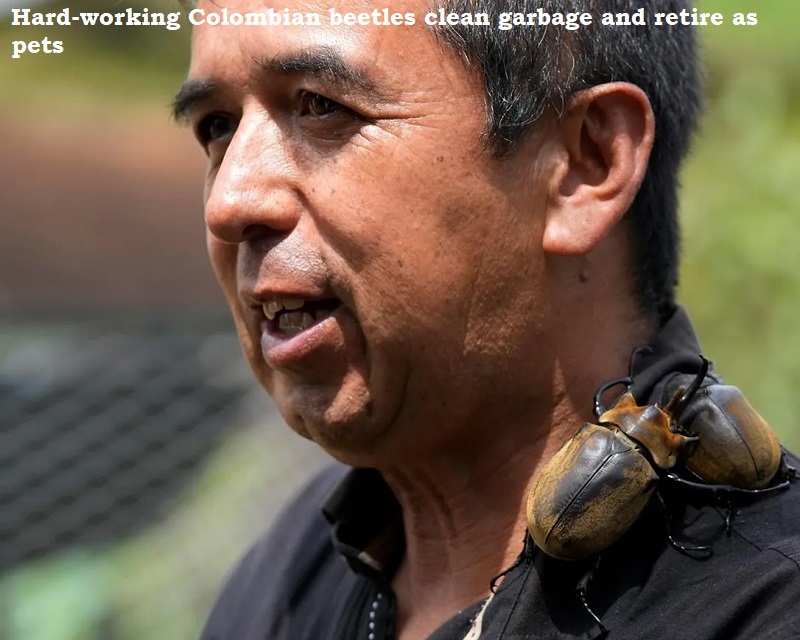
Germán Viasus Tibamoso, a Colombian environmental engineer who turns food waste into fertilisers using beetle larvae, had three yellow and black bugs clung to his shirt.
He mumbled to them in Japanese as he motioned for them to proceed, attempting to adapt them to the noises of their future homes, he claimed.
The large bugs, which can reach a length of 17 centimetres (6.5 inches), lead a wonderfully sophisticated and productive life among the people who raise and gather them.
In the rural vicinity of Tunja, which is located about 150 kilometres (95 miles) northwest of the Colombian capital of Bogota, Viasus runs a business named Tierra Viva.
An attempt as a postgraduate student to produce organic fertilizer with worms failed, Viasus said, but he found beetle larvae in the bags of earth that remained. He tried using them instead. And it worked.
The earth is covered with tonnes of food waste that have been collected from adjacent settlements and put out in concrete ditches. The larvae is then introduced.
They chew through the garbage and their digestive microbes convert it into a nitrogen and phosphorus rich fertilizer.
The product goes through a filter to separate the fertilizer from the larvae, who are about to develop into adult beetles, after about four months.
They mate and their eggs are used to start the process anew. The adults, however, go on very different journeys. Some are headed for scientific labs. And a lucky few embark on a future across the Pacific in Japan, where beetles are popular as pets and are even sold over online emporiums such as Amazon.
Tierra Viva has been exporting the bugs, largely Hercules beetles since 2004 and Viasus said they can bring as much as $150 each.
The company sent 100 beetles to Tokyo this year, down from 300 last year and they were kept in little plastic containers with food and air openings.
The sales are often in the company’s variant of cryptocurrency, called ‘Kmushicoin,’ a variant on a Japanese word for beetle.
Viasus, 52, expressed his hope that the project would flourish for another century, possibly with the use of its fertiliser in reforestation initiatives.
‘It’s very difficult in Colombia, because we do it without any help from the state or any other entity. In any other country of the world, a project like this would get a lot of help,’ he said.

Post Your Comments